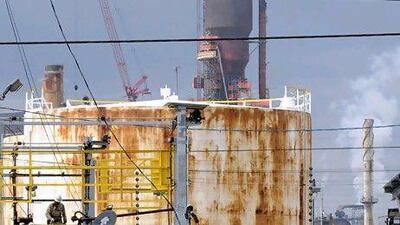The theory that market forces can help slow down global warming has taken a severe battering with the release of new carbon-emissions data for 2010.
According to the Global Carbon Project, an international collaboration of scientists, global emissions of carbon dioxide released from burning fossil fuels, sometimes referred to as "greenhouse gases", leapt to their highest level since 2003.
The rise, believed to be the steepest for any year since the Industrial Revolution two centuries ago, scotched hopes that the prolonged global recession might be reducing emissions. Emissions rose 5.9 per cent in 2010, according to the new data.
A previous drop in emissions of 1.4 per cent in 2009 had led some to believe that the financial downturn had a silver lining in environmental terms.
But, after falling by 7 per cent in 2009, emissions in the US rose by more than 4 per cent in 2010. This means that the US alone pumped 1.5 billion tonnes of carbon into the atmosphere last year. But even the scale of US emissions has now been eclipsed by China, which last year pumped 2.2 billion tonnes of carbon into the atmosphere, representing a year-on-year rise of more than 10 per cent.
The data also confirms a trend whereby the developing world is surpassing developed economies in its sheer volume of carbon emissions. The burning of fossil fuels and the production of cement sent more than 9 billion tonnes of carbon into the atmosphere last year, with developing countries such as China and India contributing 57 per cent. Last year's global emissions came to a total of 33.5 billion tonnes when converted to carbon dioxide.
But the growth in emissions from the developing world does not offset the role played by western countries; per capita emission levels are still far higher in countries such as the US than in developing economies. Because western economies have been pumping high volumes of carbon emissions into the air for far longer, they account for the bulk of the carbon now in the atmosphere.
Western countries also increasingly export their pollution by offshoring their manufacturing in developing countries. Carbon levels are believed to have grown by 40 per cent since the Industrial Revolution in the 19th century.
The sheer scale of the level of increase in emissions last year is adding to mounting pressure on governments around the world to switch to cleaner forms of energy.
Although world leaders fought to save the UN climate talks in Durban this month from collapsing, a Pacific microstate challenged them to follow it in carbon-emissions savings per person. Next September, the three islands of Tokelau, which have a total population of 1,500, will switch off the old diesel generators and be mainly powered by a US$7.5 million (Dh27.5m) solar-energy system designed to provide 90 per cent of its energy.
Although the developed world has a long way to go before achieving the per capita consumption levels set by Tokelau, economies such as those in Europe are steadily trying to implement environmental initiatives while not entirely forsaking fossil-fuel reliant industries such as aviation.
Germany, for instance, has already started to inform the world's airlines of the number of carbon-emission certificates they will receive free every year. The strategy is to prepare the airlines for the inclusion of the aviation industry in the European Union's scheme to cap and trade carbon emissions in 2012.
Germany's Federal Environment Authority has said it would deliver about 42.8 million carbon-dioxide certificates next year. From 2013 to 2020, the authority will continue to send out 40.5 million certificates each year.
However, the notification of certificates for 2012 have only been sent to 130 airlines out of a possible 409 because many have requested or been granted exemption from the trade in carbon emissions. Some others have not provided enough information to enable Germany to calculate their entitlement.
The EU's determination to tighten security for its emissions trading scheme is also evidence of Europe's desire to reduce emissions over the long term. The EU has announced the introduction of a Europe-wide single registry for its Emissions Trading Scheme (ETS) to replace the current system of national registries.
But many different types of EU subsidies and initiatives have been blighted by fraud in the past, although Europe seems determined to shine a corruption-free light on its ETS. Access to confidential information is to be shared more widely, creating greater transparency in the market.
National authorities will also be given the power to freeze accounts or delay transactions in cases of suspected fraud.
The spur given to western and developing economies by the growing evidence of mounting global carbon emissions now looks set to result in a gradual worldwide growth in environmentally friendly schemes and initiatives sponsored by governments. This, in turn, will underpin the long-term value of alternative energy stocks.

